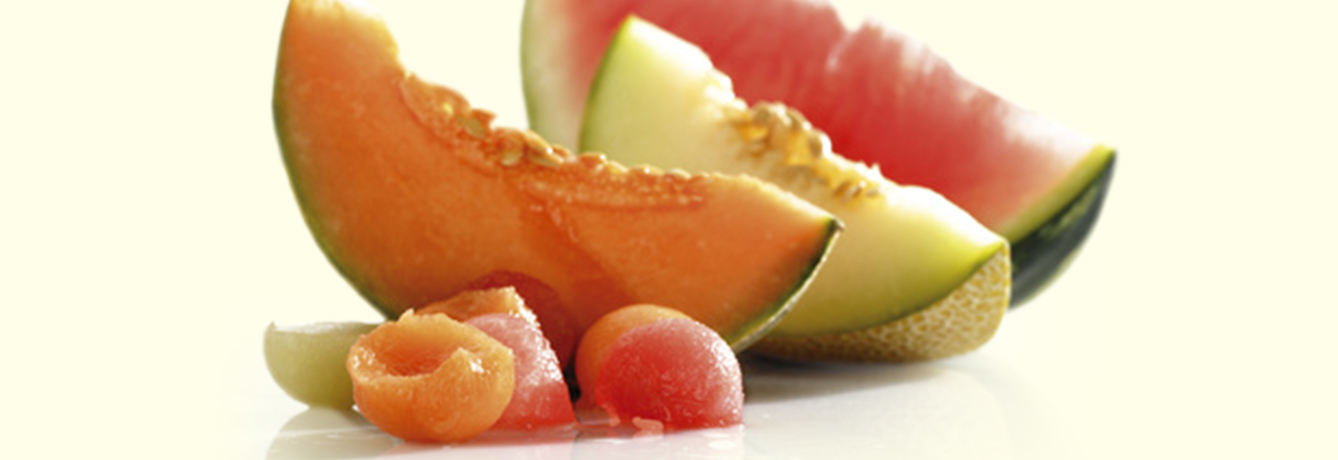Nothing beats chilled melon on a hot summer day–but how do the different varieties fare when matched against each other? Below we compare the nutrition benefits of cantaloupe, watermelon, honeydew and casaba. Since the “official” serving size seems somewhat random (e.g., a fourth of a cantaloupe versus a mere tenth of a honeydew), we decided to level the playing field by comparing nutrient contents for one cup of each. Don’t feel compelled to stop there though: Melons are a dieter’s dream, so fill up on these low-calorie, nutrient-dense treats.
King Cantaloupe: For your skin, and for your immunity–cantaloupe is a monarch among melons, containing a treasure trove of key nutrients for a mere 54 calories per cup.
No melon supplies more beta-carotene, an antioxidant carotenoid, some of which neutralizes free radicals directly, some of which your body converts to vitamin A (a needed nutrient MIA in over half of Americans’ diets).
Known as “anti-infective vitamin A” for its ability to help the body defend itself against bacteria and viruses, other “A”-list benefits include preserving eyesight, enhancing sun protection and possibly reducing the risk of several types of cancer. Cantaloupe also supplies nearly 100% of your daily vitamin C — especially important if you’re among that 10% of the population deficient in this antioxidant vitamin.
Winning Watermelon: This summer staple not only beats other melons as a lycopene source–watermelon provides nearly twice the lycopene as tomatoes when compared gram-per-gram. In addition to lycopene’s possible association with prostate cancer protection, this colorful carotenoid may also lower the risk of other cancers, including ovarian, cervical, oral, esophageal, stomach, colorectal, lung and pancreatic.
In addition to possibly protecting you from the inside out, lycopene may provide topical antioxidant protection as well.
Bonus: Lycopene may enhance male fertility, while another watermelon compound, citrulline, may help support male sexual health. At only 46 calories a cup, that’s a nutrition bargain.
Healthy Honeydew: For just 61 calories per cup, this honey of a melon supplies over half your daily vitamin C, a multipurpose antioxidant that benefits your bones, joints, skin, and immunity. USDA researchers have linked high blood levels of vitamin C with lower levels of C-reactive protein, a marker for heart disease and other ailments.
Honeydew also provides a good source of potassium–a mineral and electrolyte that plays a key role in regulating blood pressure. With 97% of Americans failing to get adequate potassium, it’s no wonder that one in three adults suffer from hypertension. One study found that diets rich in potassium reduced stroke risk by 50%.
Count on Casaba: Low on calories (48 per cup) and long on vitamin C (supplying 62% of your daily needs), casaba contains 14% of your daily vitamin B6 needs. This little nutrition nugget should not be ignored, given the importance of B6 in protecting your DNA. In one Washington State University investigation, participants who reduced their vitamin B6 intake exhibited 75% more DNA strand breaks than at the study’s start. Once recommended intake levels of B6 were restored, the rate of DNA breakage returned to normal range. No wonder people with higher intakes of B6 have been found to have a lower incidence of colon, prostate, lung, gastric and pancreatic cancers.
Published July 1, 2013



